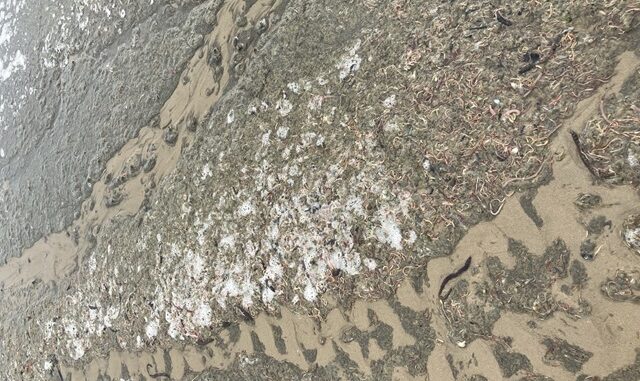
The Environment Agency has issued a further update for the pollution alert, and dead marine life, along the coastline from Minnis Bay to Margate.
The EA says it is investigating after receiving a report of thousands of dead and dying ragworms and lugworms on the beach at Minnis Bay on Monday (May 20).
A statement, issued via North Thanet MP Sir Roger Gale, says: “As a precautionary measure, two beaches have been closed and advice given against bathing at five beaches in the area. Signs are displayed between Minnis Bay and West Bay to warn members of the public.
“The affected beaches are Minnis Bay, West Bay, St Mildred’s Bay, Westbrook Bay and The Bay (Margate).
“We are carrying out a range of tests to identify the cause of the shellfish and invertebrate deaths at Minnis Bay. We are also working with the Centre for Fisheries, Environment and Aquaculture Science (CEFAS) and the Association of Inshore Fisheries and Conservation Authorities (AIFCA), who are carrying out tests on shellfish.
“The evidence so far suggests the deaths may have been caused by an algal bloom, which has then died back, causing oxygen levels in the water to crash. However, at this point we cannot rule out other possibilities including species of algae, which can release toxins into the water, therefore our advice against bathing remains.
“We do not believe that this was caused by sewage pollution from storm overflows. Nevertheless, we have sampled the water to check for bacteria associated with sewage to confirm this.
“We expect to receive further test results today (Wednesday 22nd May) to inform our response. We will continue to monitor the situation closely and engage in multi-agency working, including with CEFA, AIFCA, Thanet District Council and Canterbury City Council.”
Any further reports relating to this incident can be made via the free 24-hour incident hotline on 0800 80 70 60.

